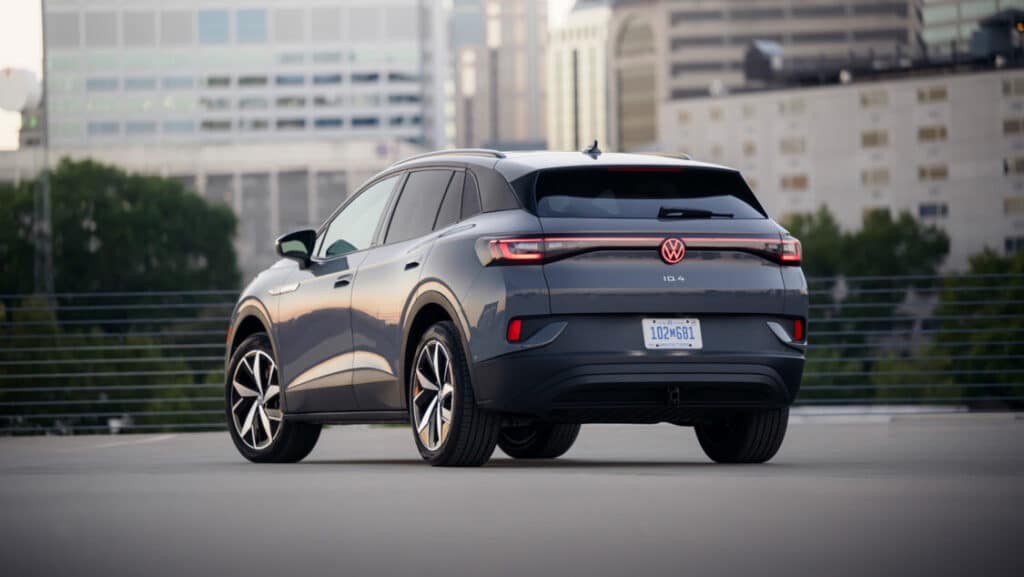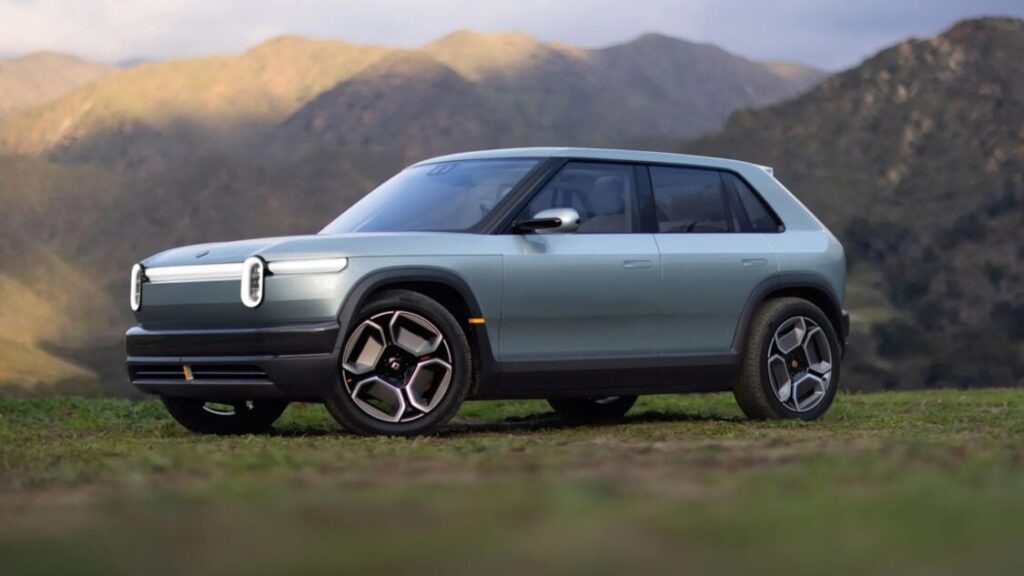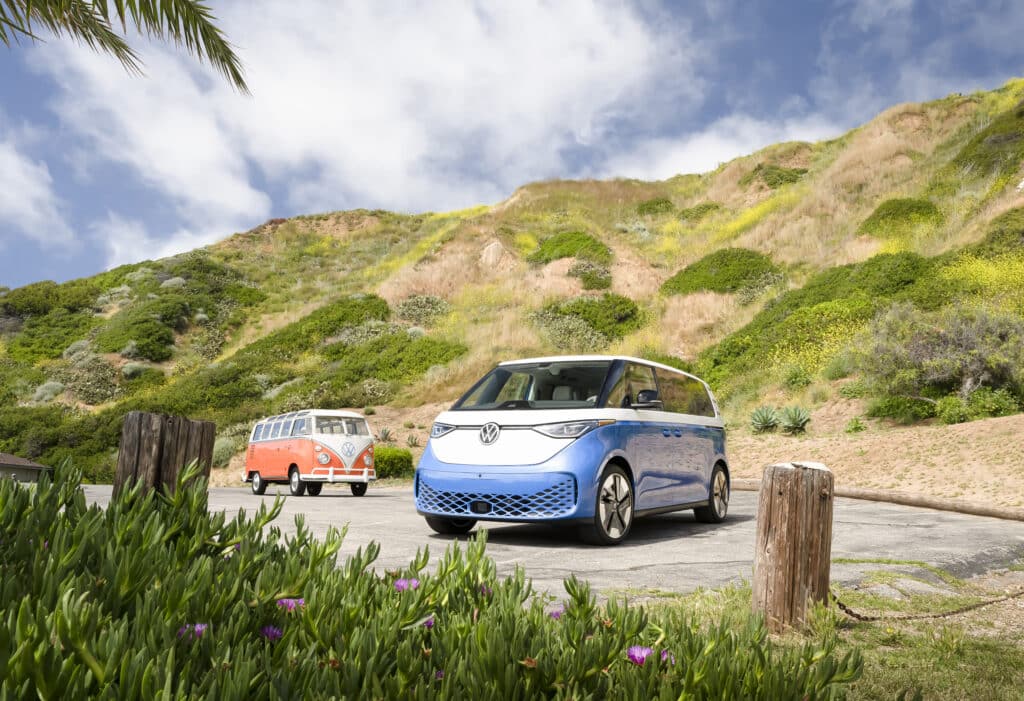Can EVs Help VW Grow in the US?
When Volkswagen Group invested $5 billion in U.S. electric truck-and-SUV maker Rivian at the end of June, the startup’s shares soared due to the substantial cash infusion. This move was seen as a significant boost for Rivian, enhancing its financial stability and capacity to expand its electric vehicle (EV) offerings. However, Volkswagen’s own stock experienced a 1.6% drop following the announcement.
The creation of a Volkswagen-Rivian joint venture drew mixed reactions from analysts. On one hand, some praised the collaboration, highlighting its potential to aid Volkswagen in addressing its software challenges, a critical component in the evolving automotive landscape. The joint venture was expected to combine Rivian’s innovative approaches with Volkswagen’s extensive automotive experience, potentially accelerating advancements in EV technology and software development.

On the other hand, the substantial investment raised cost concerns among investors and analysts. It underscored the financial pressures Volkswagen faces as it navigates its global EV transition. The company’s commitment to electrification requires significant capital, and this investment added to the already high costs associated with developing and scaling EV technologies.
Furthermore, the Rivian investment highlighted the persistent issues Volkswagen encounters in critical areas, such as software development, which have hindered its EV progress. The reliance on a partnership to address these challenges indicated underlying vulnerabilities in Volkswagen’s strategy and execution. As the automotive industry increasingly shifts towards electrification, resolving these issues is paramount for Volkswagen to maintain its competitive edge and achieve its ambitious EV goals.

The world’s second-largest automaker, Volkswagen, faces a complex and challenging landscape across its key markets in Europe, the U.S., and especially China. In China, domestic EV makers like BYD are rapidly eroding Volkswagen’s market share, posing a significant threat to its dominance. Over the past two years, Volkswagen has seen a more substantial decline in stock value than any of its major competitors, reflecting the market’s concerns about its ability to navigate these challenges effectively.
Volkswagen has ambitious plans to counter these difficulties. By 2030, the company aims to introduce more than 30 new electric or hybrid models in China, a crucial market for its future growth. Volkswagen hopes these new models will help boost its sales in China from approximately 3 million vehicles today to about 4 million. Achieving this target would increase its market share to 15%, reinforcing its position in the world’s largest automotive market.
However, reaching these goals will not be easy. Volkswagen must overcome stiff competition from agile and innovative domestic manufacturers like BYD, which have been quick to capitalize on the growing demand for electric vehicles in China. Additionally, Volkswagen must address its own operational and strategic challenges, particularly in software development and integration, to ensure its new models meet consumer expectations and regulatory requirements.
Volkswagen’s troubles in China highlight the bleak prospects for foreign automakers in a market increasingly dominated by homegrown EV makers. These local manufacturers are leading the world’s fastest electric-vehicle transition with high-tech, low-cost models that appeal to a broad range of consumers. Volkswagen finds itself particularly vulnerable because China accounts for about a third of its global sales, making it a critical market for the automaker’s overall performance.
The rapid rise of domestic EV companies like BYD has intensified competition, challenging Volkswagen’s ability to maintain its market share. These Chinese companies have been able to quickly adapt to market demands, offering advanced features at competitive prices, which have resonated well with Chinese consumers. In contrast, foreign automakers, including Volkswagen, have struggled to match the pace of innovation and cost efficiency exhibited by their local counterparts.
Volkswagen’s heavy reliance on the Chinese market adds to its vulnerability. Any significant loss in market share in China can have a substantial impact on the company’s global sales and profitability. This dependency underscores the urgency for Volkswagen to revamp its strategy in China, focusing on faster innovation, cost reduction, and closer alignment with local consumer preferences.
The US Market
Volkswagen’s much-smaller U.S. operation is now tasked with shouldering the company’s biggest growth ambitions as it aims to more than double its U.S. market share to 10% by 2030. With 30 electric vehicles planned for the US, VW expects EV sales to turn around. However, this ambitious target is met with skepticism from about a dozen investors and analysts interviewed by Reuters. They doubt that Volkswagen has found the right formula to achieve a sales boom in the U.S. market.
Several factors contribute to this skepticism. Firstly, Volkswagen is perceived to lack a distinctive brand identity in the U.S. This market has traditionally favored larger vehicles, such as SUVs and trucks, categories where Volkswagen has not historically been a dominant player. Moreover, the U.S. has proven resistant to electric vehicles, with consumer preferences still leaning heavily towards traditional internal combustion engine vehicles and hybrid models.
In addition to these challenges, Volkswagen has yet to introduce breakthrough products that could significantly shift consumer perception and drive a substantial increase in sales. In a crowded and competitive market, the company needs to offer compelling reasons for consumers to choose its vehicles over those of established American and other foreign manufacturers who have a stronger foothold and brand loyalty in the U.S.
To achieve its ambitious goals, Volkswagen will need to develop and market vehicles that resonate with U.S. consumers, particularly in the SUV and truck segments. This might involve not only technological innovations but also a concerted effort to build a stronger, more distinctive brand identity that appeals to American tastes and preferences.
Volkswagen’s success in the U.S. market will also depend on its ability to navigate the country’s slow transition to electric vehicles. This will likely require significant investment in marketing, infrastructure, and consumer education to overcome resistance and build demand for its EV offerings.
Rivian Partnership, New Scout Models
The Rivian partnership is a strategic part of Volkswagen’s efforts to bolster its presence in the U.S. market, though it will not directly result in new models to boost immediate sales. Instead, the 50-50 joint venture aims to develop software and other technologies beneficial to both automakers. Volkswagen remains optimistic that products incorporating technology from this collaboration will attract new customers. However, Rivian has declined to comment on how this partnership could influence Volkswagen’s sales.
Volkswagen will launch two electric vehicles, a pickup and an SUV, in late 2026 under its Scout nameplate. Scout is a historic American off-road brand, and Volkswagen is leveraging this legacy to appeal to U.S. consumers.

These new models will be produced at a new $2 billion factory in South Carolina, with an initial capacity of 200,000 units. Scout CEO Scott Keogh mentioned that the plant could potentially double its size, but he did not specify the expected output by 2030.
Volkswagen’s strategy of reviving the Scout brand and introducing models that align with American preferences for larger vehicles, such as pickups and SUVs, is a calculated move to gain a stronger foothold in the U.S. market. By tapping into the nostalgic value of the Scout nameplate and addressing consumer demand for rugged, versatile vehicles, Volkswagen aims to carve out a distinctive identity in the competitive landscape.
ID. Buzz Van Coming
Continuing with the retro theme, Volkswagen plans to release an electric version of its iconic Microbus, the ID. Buzz, later this year. This move aims to capitalize on nostalgia while promoting Volkswagen’s transition to electric vehicles. The ID. Buzz combines modern electric vehicle technology with the beloved design of the classic Microbus, potentially attracting both long-time fans and new customers interested in unique EV offerings.

In addition to its electric ambitions, Volkswagen is also focusing on expanding its lineup of gas-powered SUVs to cater to the strong U.S. demand for larger vehicles. VW’s U.S. chief, Pablo di Si, mentioned in an April interview with Reuters that the company plans to introduce new gas-powered SUV models. This strategy recognizes the current market reality where many consumers still prefer traditional internal combustion engines, especially in the SUV segment.
Volkswagen is also considering the introduction of new plug-in hybrids. This approach provides a transitional option for consumers who are not yet ready to commit fully to electric vehicles but are interested in more environmentally friendly alternatives. Plug-in hybrids offer the benefit of reduced emissions while maintaining the convenience and range of gasoline engines.
The combination of these strategies—reviving iconic models like the Microbus with the ID. Buzz, expanding the gas-powered SUV lineup, and exploring new plug-in hybrids—reflects Volkswagen’s multifaceted approach to the U.S. market. By addressing diverse consumer preferences and gradually steering its portfolio towards electrification, Volkswagen aims to strengthen its position and increase its market share in the U.S.
Market Share Falling for Foreign Brands in China
Volkswagen’s predicament underscores the broader industry shake-up driven by the rapid development of electric vehicles (EVs) in China. Chinese domestic brands have effectively leveraged government subsidies and the country’s advanced battery supply chains to dominate the market. As a result, EVs and hybrids now represent about 40% of new car sales in China, according to the China Passenger Car Association.
The shift towards electric and hybrid vehicles in China has significantly impacted the market share of foreign brands. Their collective market share has dropped from 62% in 2019 to 44% in the first four months of this year. This decline highlights the challenges foreign automakers face in competing with agile, innovative domestic manufacturers who benefit from strong government support and superior local supply chains.
Volkswagen has managed to fare better than some of its foreign counterparts, although it still faces considerable challenges. For example, General Motors (GM) has experienced a more drastic decline, with its sales in China slumping by more than half this year. Volkswagen’s relative resilience can be attributed to its early and substantial investments in EV development and its strategic partnerships within China.
VW’s $700 Million Investment in Chinese EV Maker Xpeng
Volkswagen is making significant investments to mitigate its challenges and regain momentum in the Chinese market. In April, the company announced a $2.7 billion investment in an EV design-and-production hub in Anhui province, signaling a strong commitment to expanding its presence in the Chinese EV sector. This move follows a $700 million investment in Chinese EV maker Xpeng last December, aimed at developing EV platforms and software, as well as launching two EV models by 2026.
Despite these substantial investments, industry analysts indicate that Volkswagen must accept a diminished role in China’s EV market for the time being. The rapid rise of domestic competitors, supported by government subsidies and advanced battery supply chains, has created a challenging environment for foreign automakers.
Volkswagen Faces Significant Hurdles in the US Market and China
Volkswagen’s recent initiatives, such as the revived Scout brand, partnership with XPeng and joint venture with Rivian to develop software and other technologies, are steps in the right direction. Still, the company must focus on creating distinctive, compelling, and innovative products that can stand out in a crowded and competitive global EV market.

Electric Vehicle Marketing Consultant, Writer and Editor. Publisher EVinfo.net.
Services